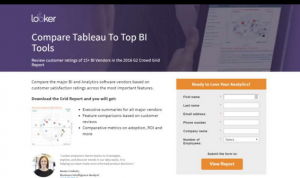Earlier this month, I was at Turing Fest – a two-day marketing/tech conference in Edinburgh.
Whenever I go – this is my third year in a row – I feel like I’m behind enemy lines. For three reasons…
#1: I’m much older than most of the attendees. That sucks. Get off my lawn.
#2: I work with “real businesses,” while most attendees work for start-ups. You know, the sort of tech company that creates an app, gets bought by investors for tens of millions… and then the investors realise there’s no way to make money from it.
#3: I’m a direct marketing guy. Most of the marketers are SEO/social media types.
But, despite this, I enjoy myself and keep going back.
And, each year, I learn interesting and useful things.
Now, you might assume I’m about to share some of these things with you…
Well… not so fast… I might write an upcoming newsletter about my top takeaways, but that’s for another time.
Instead, I’m going to write about one of the “clashes of culture” I experienced.
Here’s the story…
In the blue corner… Wil Reynolds!
The first speaker on the second day was Wil Reynolds. Wil spoke in 2016 and is well worth catching if he’s appearing near you. (Which won’t be often as he’s based in San Diego.)
He’s a long-time SEO guy, but has recently tried managing PPC accounts, and his talk was about what he’d learned from this.
And one of his takeaways was that there’s often a gulf between what the searcher wants and what PPC adverts provide.
An example he used was the search “looker pricing” (Looker is a brand of software).
As he showed, Looker’s ad takes the searcher to a page that has no pricing information. Instead, it tries to get you to sign up for a report.
As Wil pointed out, they simply ignore the visitor’s question, and say, “Get in our funnel!”
As you can imagine, this got a lot of laughs. But there was one person who wasn’t laughing…
In the red corner… Satan… oops, sorry, Steve the PPC guy!
I don’t know how to say this without sounding like the sort of person who is ruining the internet… but here goes…
My clients don’t care about good user experience, they care about maximising profits. If the two things intersect, great. But, if they conflict, we do what’s profitable.
And, if the goal is to generate leads, we usually find we get more qualified leads by not answering all the prospect’s questions on our website.
And there’s a simple reason for this…
You can sell your prospect better than he can sell himself
Usually, your prospect is asking the wrong question.
And, if he’s price shopping, he’s almost definitely asking the wrong question. That’s because no-one should be shopping on price alone.
But, if he doesn’t know what questions to ask – if doesn’t know how to differentiate between two similar products – he might buy on price. But it’s only because it’s his last resort.
But it’s a lousy way to buy. And, unless you’re selling on price, it’s a lousy way to sell.
In fact, there’s a rule of thumb in sales that says…
Don’t talk about the price until you’ve talked about the value.
If you’re cheap, then by all means, lead with the price. But if you’re expensive, then tell them the VALUE… then, once you’ve established that, you can tell them the price because it’ll seem cheap in comparison.
Having said all this…
Wil does have a point.
But the issue wasn’t that the landing page didn’t have the pricing information. The issue was that it ignored the pricing question altogether.
The prospect is asking, “How much is your software.” You’re replying, “Would you like a report about our features.”
If you did that in real life, people would think you’ve got mental health issues.
“Could you please tell me which way is the train station?”
“I have a puppy. His name is Benji.”
See what I mean?
So what should Looker do?
A better way to do it
When someone does a search like, “XXXX software price,” you can have an ad that says, “Want to know our prices?” Then take them to a landing page where you say something like …
“Yes, we’re expensive.
Or, at least, that’s what you’d think if you just compared our prices to our competitors’.
But the truth is, we’re actually cheaper. Here’s why…
– Our competitor’s software does X. Ours does X, Y and Z. That means you don’t have to buy software that does Y and Z. That alone makes us cheaper.
– Our system integrates seamlessly with the following systems {List}. That means there are no development costs. It works straight out the box.
– Yada, yada, yada etc.
To get our full pricing information – and a comparison table that compares our features and benefits to those of our 4 top-selling competitors – just fill in the form on the right and we’ll email it to you.”
See how that does a far better job of continuing the conversation. You’ll still get leads, In fact, probably more leads than before and better qualified leads.
Plus, you’re being less of a dick. And that’s got to be a bonus.
All the best,
Steve Gibson
P.S. Earlier I said I wasn’t laughing at Wil’s points. Actually, that’s a lie, I was. He’s an amusing guy, and I don’t take this stuff personally. So, please, forgive that bit of dramatic license.
P.P.S. Next month’s newsletter will probably be about my “Top 10 Turing Takeaways.” There’s a lot of great stuff to share.




